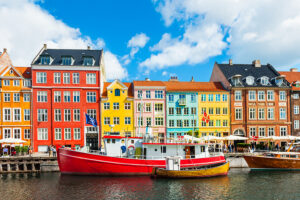EU approves €1.7 billion Danish renewable gas scheme

The scheme will contribute to the EU's climate targets in line with the European Green Deal, as well as the objectives of the REPowerEU Plan to reduce dependence on Russian fossil fuels and accelerate the green transition.
Denmark notified the Commission of its plans to introduce a scheme, with an estimated budget of around €1.7 billion, to support the production of upgraded biogas and e-methane to be injected into the Danish grid.
The measure is expected to support the production of 7.9 petajoules of renewable gases per year.
The scheme will support the construction of new plants, as well as the extension of existing plants.
The biogas plants must comply with the sustainability and greenhouse gases (GHG) emissions saving criteria set out in the Renewable Energy Directive, while the e-methane plants must prove compliance with the criteria for the production of renewable fuels of non-biological origin (RFNBOs) set out in the delegated acts on renewable hydrogen.
Under the scheme, the aid will take the form of a price premium per gigajoule of renewable gas produced, paid on top of the market price for natural gas, over a 20-year period.
The aid will be awarded through a competitive bidding process where beneficiaries will bid on the price premium needed to carry out their project.
Denmark plans to conduct five bidding rounds from 2024 until 2030. The plants must be connected to the grid within three years after the granting of the aid.
The scheme is expected to reduce GHG emissions by approximately 450,000 tonnes of CO2 annually from 2033. It will also contribute to Denmark's efforts to reduce its GHG emissions by 70% by 2030 compared to the 1990 levels and to reach carbon neutrality by 2050.
Teresa Ribera, executive vice-president for clean, just and competitive transition, said: "This €1.7 billion scheme will boost the production of renewable gas in Denmark. The measure will help Denmark meet its emission reduction targets and reduce reliance on imported fossil fuels. It will also contribute to the green transition, while limiting possible distortions of competition."
















